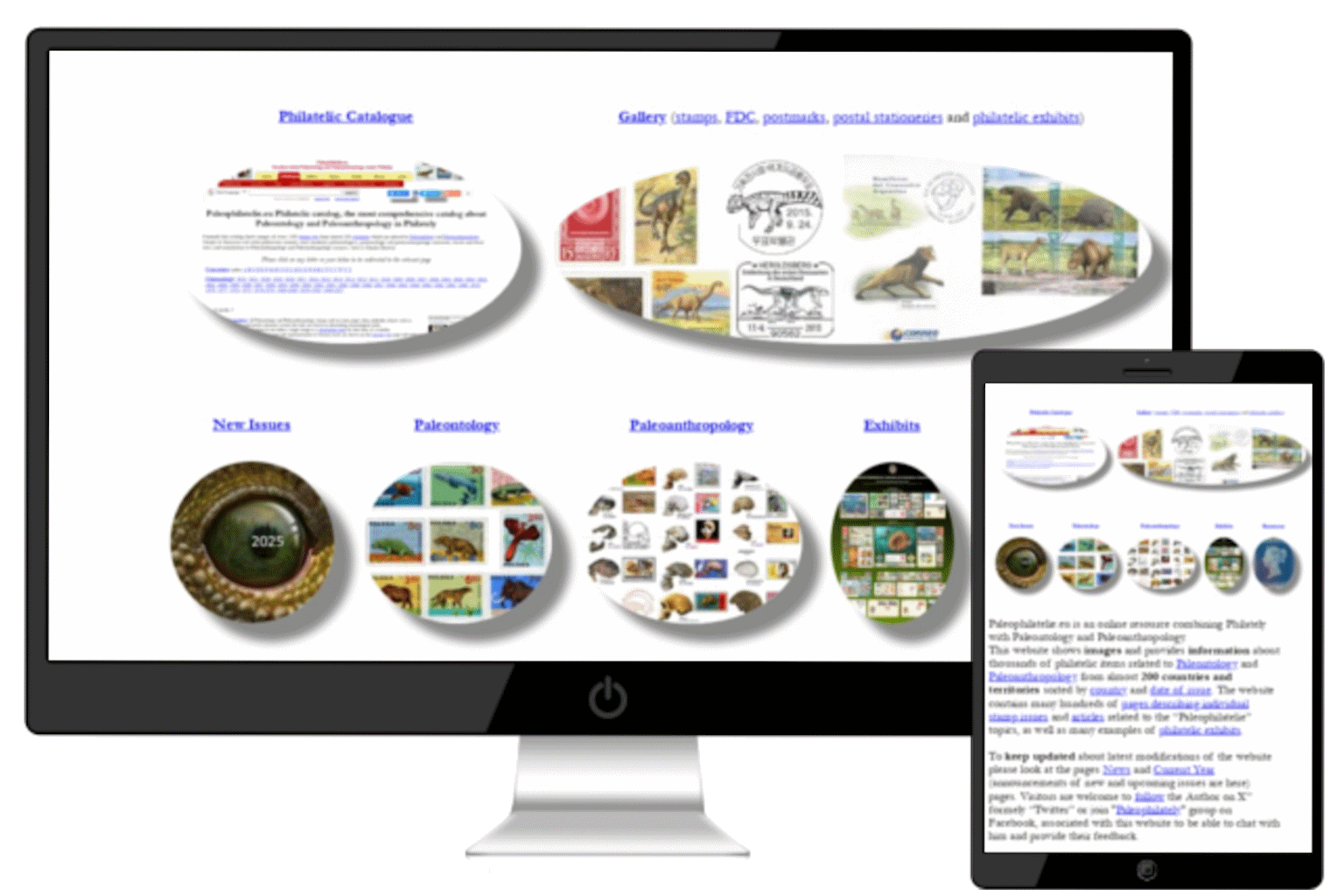Brazil 2010
"Tribute to paleontologist Peter Lund and Lagoa Santa/MG"
| Issue Date |
14.06.2010 |
| ID |
Michel: 3786,
Scott: 3131,
Stanley Gibbons: 3633,
Yvert et Tellier: 3108,
Category: pP
|
| Designer |
Jamile Costa Sallum |
| Stamps in set |
1 |
| Value |
R$1,05 - Peter Lund |
| Emission/Type |
commemorative |
| Issue place |
Lagoa Santa |
| Size (width x height) |
40mm x 30mm |
| Layout |
Sheet of 30 stamps |
| Products |
FDC x1 |
| Paper |
Gummed chalky paper, no watermark |
| Perforation |
11.50 x 12.0 |
| Print Technique |
Offset.
Photography and computer graphics techniques. |
| Printed by |
Casa da Moeda do Brasil |
| Quantity |
300,000 |
| Issuing Authority |
Empresa Brasileira de Correios e Telegrafos |
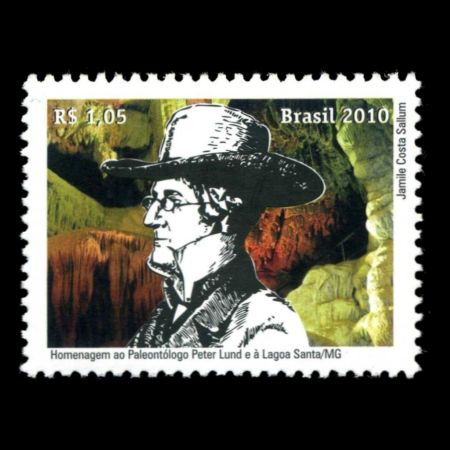
On June 14
th 2010, Brazilian Post issued the stamp
"Tribute to paleontologist Peter Lund and Lagoa Santa/MG".
The stamp shows paleontologist Peter Lund on the foreground and one of the caves at Lagoa Santa
on the background.
The following text was written by Rosangela Albano da Silva, archeologist of Archeology Center
of municipality of Lagoa Santa, for the stamps information flyer.
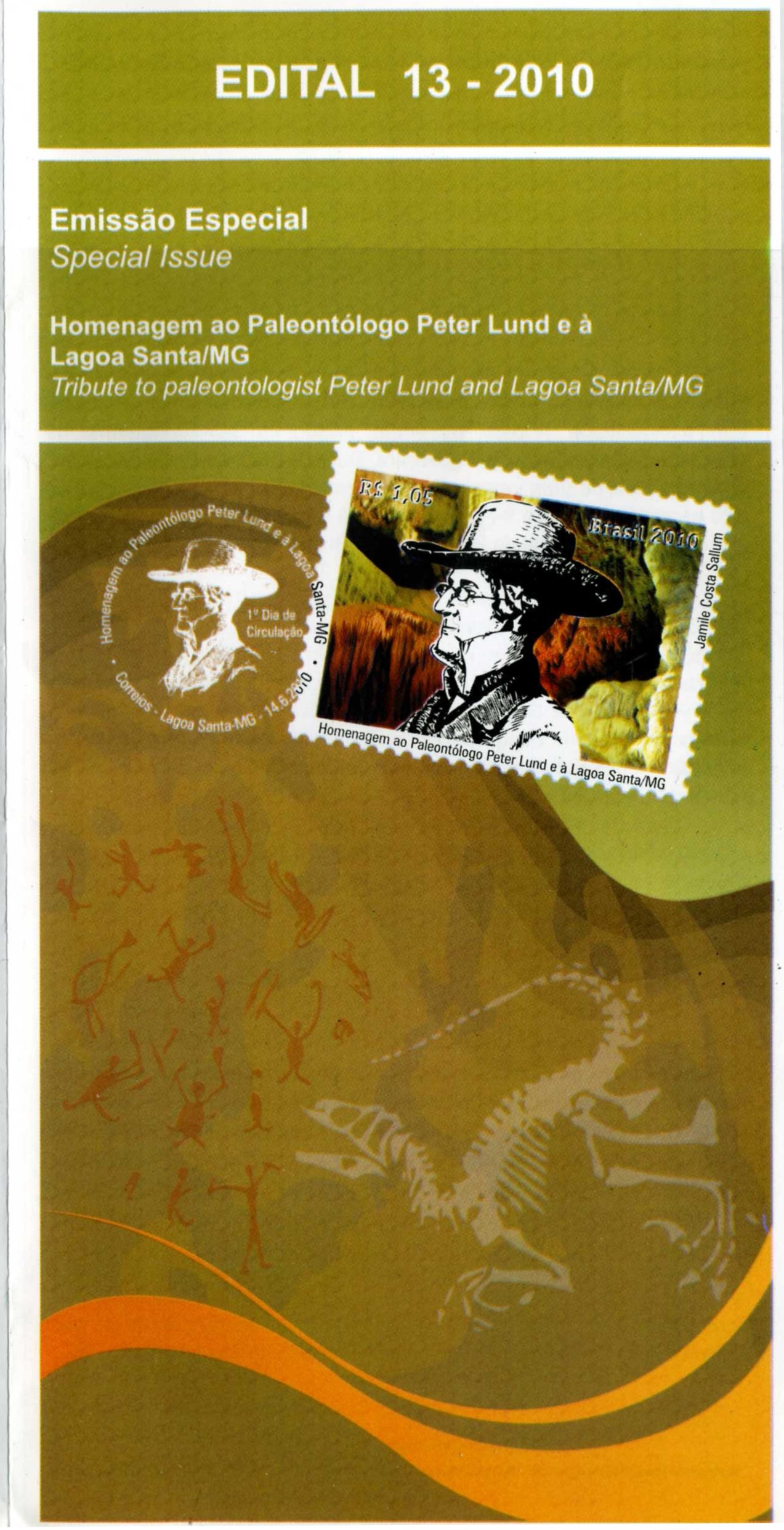 |
Danish paleontologist Peter Wilhelm Lund, born on June 14th 1801, came to Brazil
for the first time in 1833, to continue his studies in botany and zoology.
He settled in Rio de Janeiro, where he made a thorough survey of all vegetation in the
Baixada Fluminense area (in Rio de Janeiro), and also analyzed the behavior of ants.
In 1835, Lund decided to settle in Lagoa Santa, in the State of Minas Gerais, finding the perfect
place to live and develop his work quietly.
From that time on he began to delve deeper in the great scientific path that he had embraced.
In nine years of research, he explored more than a hundred caves, and found about 120 fossil
species and 94 belonging to the current fauna.
He thus became the Father of Brazilian Paleontology.
Another important issue raised by Lund was the hypothesis of coexistence of extinct fauna with
man in the region of Lagoa Santa, finally proven this century through new research in the area
carried out by the Laboratory for Human Evolutionary Studies of the University of Säo Paulo - USP.
His entire scientific collection was analyzed by Herluf Winge (1857–1923) and
Johannes Theodor Reinhardt (1816–1882).
Together, Winge and Reinhardt ensured that Lund’s vast paleontological collection,
mostly stored in Copenhagen after Lund’s death, was scientifically documented and published,
preserving Lund’s legacy and advancing knowledge of extinct South American fauna.
These findings were of great importance for the studies undertaken by British naturalist
Charles Darwin on the
Theory of Evolution.
In 1844, Lund ended his work in the caves, and took a new direction in his research.
In 1845, he sent his magnificent collection to the University of Copenhagen in Denmark and then
devoted himself to botany.
In 1863, he brought botanist Eugene Warming to Lagoa Santa with the aim of mapping and studying
the local vegetation.
Currently, this rich collection is at the Zoological Museum in Copenhagen.
A tireless researcher, Lund took the first step towards the introduction of Ecology in Brazil,
with the first world Study of Phytoecology.
He made many friends and gained the affection of the small town of Lagoa Santa, where he lived for
many years, providing an invaluable contribution to the town's cultural life, teaching music,
and creating, in 1842, its first band, the Santa Cecilia band.
This stamp was issued in recognition of the important work carried out by paleontologist Peter Lund
on behalf of science, and is a tribute to the region of Lagoa Santa, where he worked as a scientist
and lived as an active citizen for most of his rich life.
Products and associated philatelic items
| FDC |
First-Day-of-Issue Postmark |
Sheet |
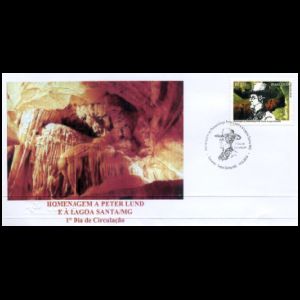 |
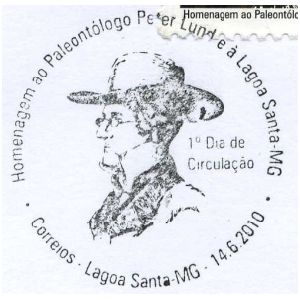 |
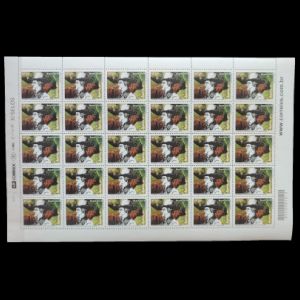 |
| Official FDC of Brazilian Post was made on a white cover without cachet,
with engraved the name of the Post: Correios.
The cachet was printed by a stamp dealer.
|
|
|
|
| Example of circulated covers |
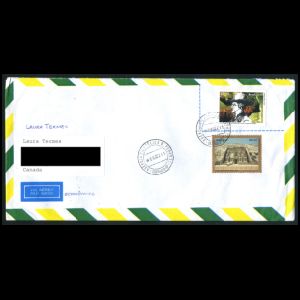 |
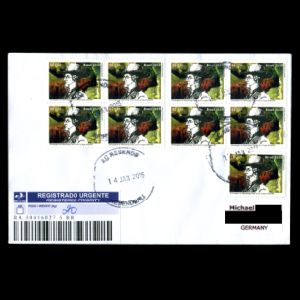 |
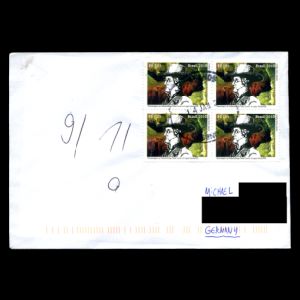 |
References
Official information booklet of Brazilian Post,
Wikipedia.
Acknowledgements
Many thanks to
Dr.
Peter Voice from Department of Geological and Environmental Sciences, Western Michigan University,
for his help to find an information for this article, the draft page review and his very valuable comments.
